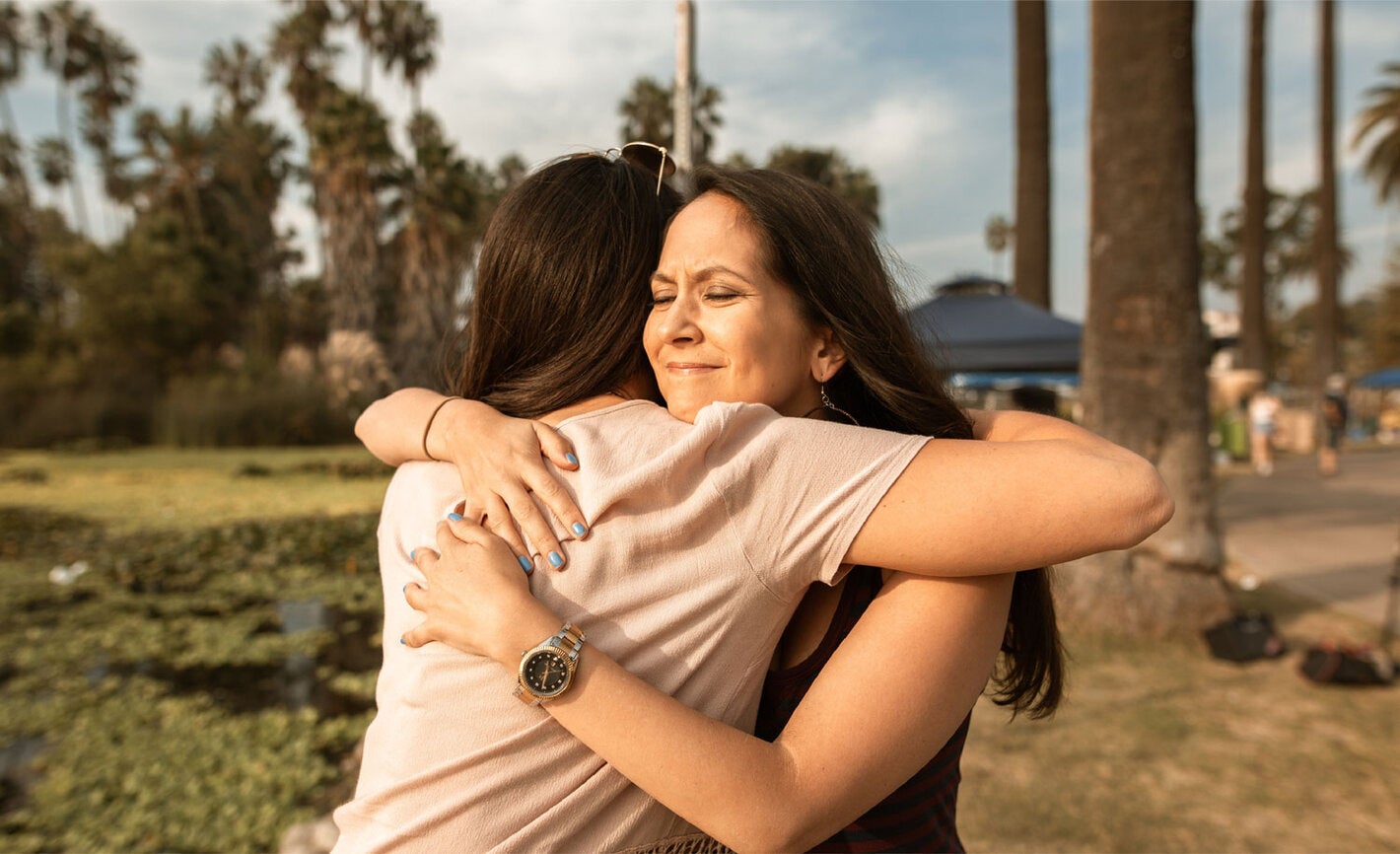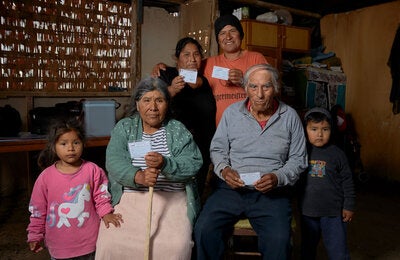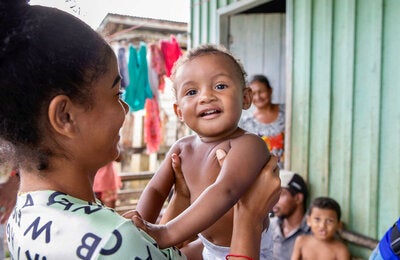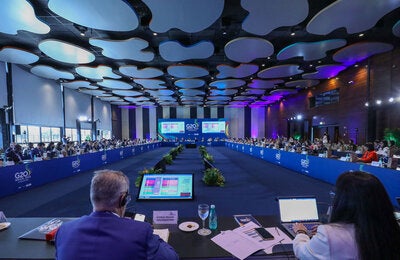
Washington, D.C. 28 September 2022 (PAHO/WHO) – The burden of mental health conditions has increased in the Americas due to COVID-19, and this situation has been exacerbated by social determinants of health such as poverty, high level health officials concluded during a side event at the 30th Pan American Sanitary Conference.
“The COVID-19 pandemic has adversely impacted the mental health and wellbeing of everyone, everywhere,” the PAHO Director, Dr. Carissa Etienne said at the opening of the event yesterday, Leveraging Lessons Learned from the COVID-19 Pandemic to Address the Region’s Mental Health Challenges for the Future.
“We have seen rates of stress, depression and anxiety soar in our Region, and persons living in conditions of vulnerability, who have traditionally experienced a higher burden of mental health conditions and unequal access to care, were among those most affected,” Dr. Etienne added, highlighting that young people have also been disproportionately impacted.
A report published by the World Health Organization (WHO) showed that the global prevalence of anxiety and depression increased by 25% in the first year of the pandemic alone.
But in the Americas, COVID-19 exacerbated an already critical issue. The region faces increasing suicide rates, with some countries experiencing the highest suicide rates in the world.
Mental health services have been chronically underfinanced in the region, with resources directed only to mental institutions rather than to first level of care within the community. There is frequently also a lack of qualified health professionals, and stigma and discrimination are common barriers to care, in addition to policies that fail to promote and protect the human rights of persons with mental health problems.
The event examined these multiple factors contributing to poor mental health with the aim of prioritizing mental health as a pillar to advance health – and noting that there is no health without mental health – as the Americas recovers from the COVID-19 pandemic.
“PAHO Member States found innovative approaches to respond to mental health demands during the COVID- 19 pandemic, including the use of telehealth,” the PAHO Director said. “But much more is needed to ensure a true transformation of mental health through political actions at the highest level, strengthened multisectoral partnerships, investments in infrastructure, human resources and services.”
During the 30th Pan American Sanitary Conference, Member States also discussed and approved a Policy for Improving Mental health, which aims to help countries strengthen and implement policies to improve mental health in the region.
In May 2022, PAHO also established a High-Level Commission on Mental Health and COVID-19 to support Member States in improving and strengthening mental health across the Americas.
Selected quotes from high-level participants at the side event:
Carolyn Bennet, Minister of Mental Health and Addictions, Canada
“It’s clear that the COVID-19 pandemic presented significant challenges to our health care system. But we can also see that it has acted as a catalyst for people to perhaps be more open about their mental health, reducing stigma and helping us work towards positive change with impressive innovation, especially virtual care.”
Theresa Tan, Chief Public Health Officer, Canada
“The COVID-19 pandemic has certainly highlighted, in a massive way, that mental health is interconnected with all other complex public health challenges so using a public health approach to mental health can help us advance our efforts to promote positive mental health, build a system and population resilience and respond more effectively to mental health needs during times of crisis.”
Ian Gooding-Edghill, Minister of Health and Wellness of Barbados
“We live in very uncertain times, but we are aware that climate change is real, not only affecting our fragile economies but affecting individuals, their families and communities on a very persona level.
Every hurricane season for the last ten years was more active than the previous year. Heatwaves are becoming more common, and floods and droughts are commonplace. People across the region are becoming increasingly worried about climate change, with anxiety, depression, post-traumatic stress disorders and climate change trauma becoming increasingly more prevalent.”
Carla Vizzotti, Minister of Health of Argentina
“The COVID-19 pandemic highlighted the importance of individual and collective care and consensus building for psychosocial well-being, health promotion and the capacity to provide a networked response in the event of any type of emergency.”
Epsy Campbell Barr, Former Vice President of Costa Rica and Chair of the PAHO High Level Commission on Mental Health
“We need to prioritize mental health in all policies, to understand that mental health is fundamental to the full enjoyment of rights - it is necessary to position the commitment of the member states in achieving universal health coverage of human rights for all people.”
Nestor Mendez, Assistant Secretary General of the Organization of American States (OAS) and Co-Chair of the PAHO High Level Commission on Mental Health
“While we long for a return to normalcy coming out of the COVID-19 pandemic, we must not accept the “business as usual” model for mental health. Such an outcome will fail to guarantee each individual his or her fundamental right to mental health, and deprive individuals and communities the opportunity to achieve their full potential. Furthermore, we will be left vulnerable to ongoing threats to our mental health, such as future pandemics and most notably climate change.”
Dr. Tedros Adhanom Ghebreyesus, Director General of the WHO
“The fight has to be maintained. We need to make sure that mental health is constantly on the agenda and that we invest in it and that it is taken seriously.
At WHO we have to keep it visible, talk about it daily and mobilize our political leaders to lead on this.”



